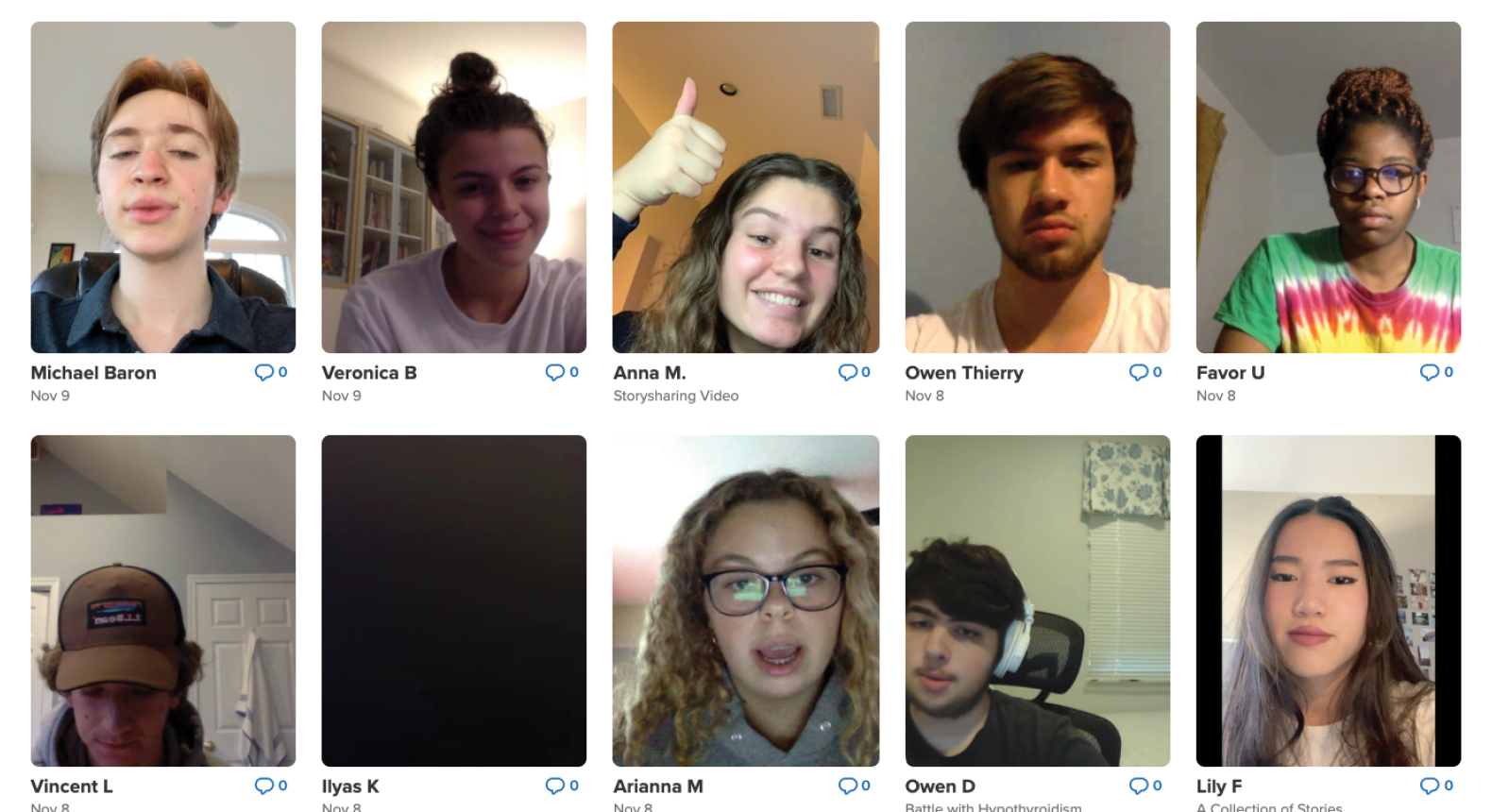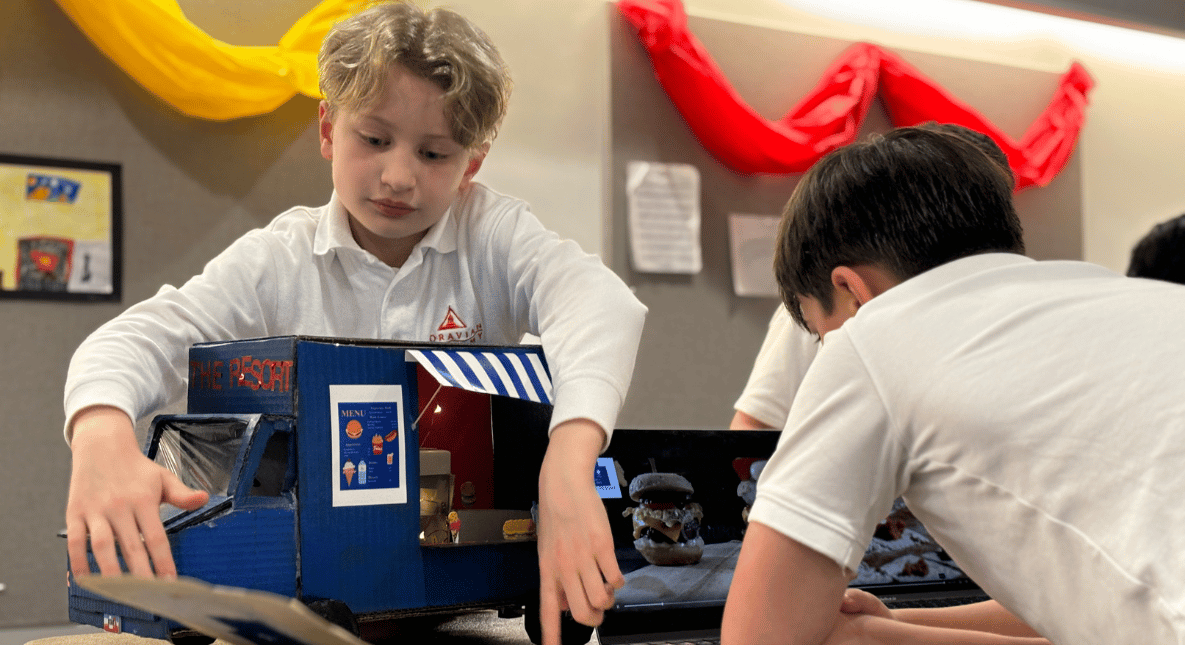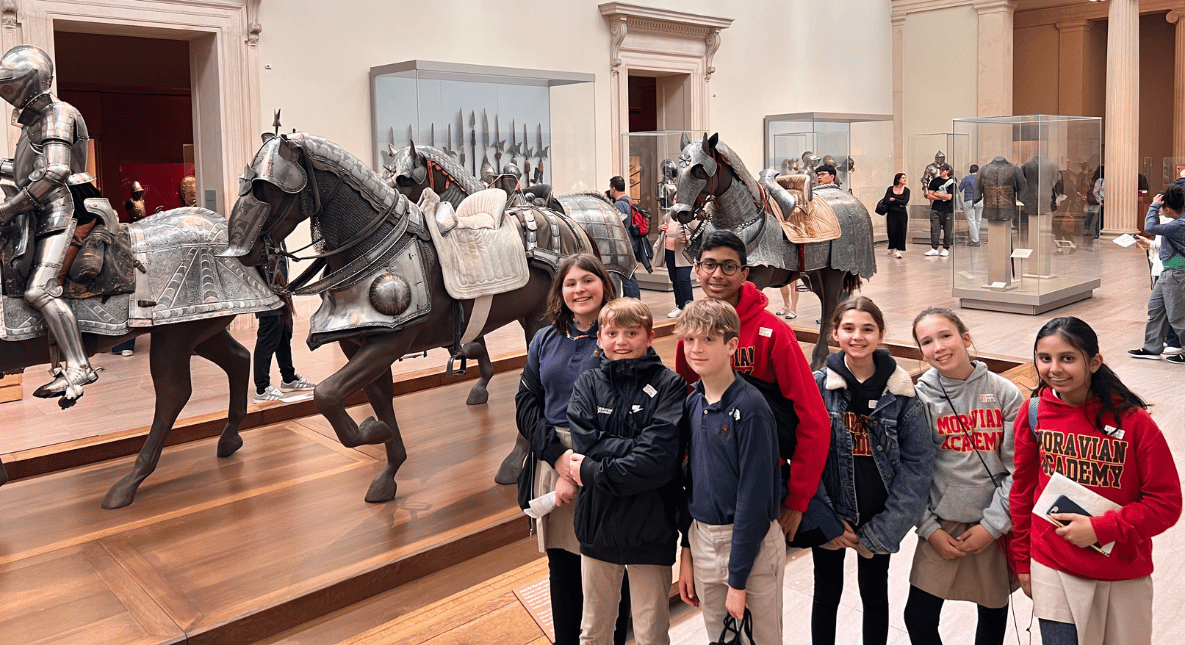Juniors Share Stories in Writing & Rhetoric
"The one true democracy we have is storytelling,” says Colum McCann, bestselling novelist and Co-founder of Narrative 4 (N4), an organization devoted to helping students deepen their understanding of themselves and their world. Storytelling “goes across borders, boundaries, genders, wealth, race,” McCann says, “everyone has a story to tell."
Earlier this month, English teachers Dr. Crowe and Dr. Moore, both trained N4 facilitators, modeled a story exchange for juniors in Dr. Crowe’s Writing & Rhetoric class. The students then took part in their own story exchanges over a week-long series of classes.
The assignment’s objectives were to hone skills of engagement, deep listening, accurate annotating, and public speaking. The exchanges began by pairing partners randomly (with an effort to create as many mixed-gender pairings as possible). Students then took time to share stories based on one of the following prompts (derived from https://narrative4.com/):
-
Tell a story from your life when you first experienced profound emotion or when the actions of another prompted a deep emotional response. Perhaps you witnessed, or participated in, a transformative act of compassion. Your story can be anchored in joy, pain, humor, embarrassment, injustice; there is no “right” story. As long as you speak from the heart, you will be successful.
-
We are all subject to battles in our lives and in our culture. Our personal battles come in many forms: a battle against laundry; a battle against a partner, parent, or friend; a battle with yourself; a battle with your environment; a battle in your community; a battle against intolerance, faith, etc. Tell your own personal “battle story” – a time when you were at odds with …
-
Tell a story about a time when you realized how much community mattered or when you first felt despair but eventually found hope.
-
Think of an essential story from your life that is emblematic of who you believe you are. Assume this story will be placed in a time capsule and, 100 years from now, it will be unearthed and read. The story should reveal some essence of you (perhaps a current you, a former you, etc.). The story can invoke any emotion and be anchored in joy, pain, embarrassment, travel, love, etc.
-
Tell a story of a “first” in your life: first travel outside your home country, first day at school, first time you remember crying, etc.
After sharing stories and taking notes, partners then took time preparing to re-tell each other’s stories using first-person narration, a hallmark of the N4 method. In other words, Suzy told Johnny her story, and then Johnny retold Suzy’s story as if he were she (and vice-versa). Many students’ stories focused on a meaningful “first” experience, including several memorable travel narratives, a few stories of physical trauma, and even some invoking family histories dating back generations.
“I found the recent story sharing to be a great bonding and learning experience,” said Archie Debbage, adding, “Stories preserve culture, pass on knowledge from generation to generation, and unite people together.” Archie’s sentiments were shared by several others:
-
“[I]t was wonderful to talk to someone who I’ve never really talked to,” said Abhishek Patel.
-
“[L]istening to my partner's story with the intention of retelling it made me a more alert and eager listener,” Arianna Matos reflected.
-
Favor Ufondu shared that “[a]lthough it was difficult to open up, I found that the activity gave me a better understanding of my partner and insight into his perception of the world.”
Though some students were skeptical about the real-world impacts of shared storytelling, most were able to reflect deeply about the project’s potential to impact people beyond an academic setting. Ilyas Kose writes, “Recounting verbal ideas in written form is an extremely important skill that has far reaching implications from academia to journalism.” Meanwhile, Anna Mayer noted that she “was surprised to find that telling my story was more difficult than I imagined it to be.”
Other students echoed Anna’s comments about the assignment’s difficulties, including the relatively brief turnaround between the selection of prompts and the re-telling of stories. Perhaps none better explains the surprising benefits of these struggles than Veronica Burchielli, who says:
I am usually not one to share hard times with other people … Despite this though, after hearing and retelling [my partner’s] story in a first person point of view, I realized that there is a much deeper level of empathy that is achieved over just sharing our own stories. I felt the same way when I heard my story being shared, … almost as if I was hearing my story for the first time.
Especially during times of strife and hardship in our nation, activities designed to increase our capacity for empathy are essential. Dr. Crowe’s Writing & Rhetoric students admirably embraced this opportunity to relate to one another with compassion. A link to the students’ retold stories can be found here.
We encourage all members of the Moravian community to explore narrative4.com for more details about the transformative power of shared storytelling.


 myMA
myMA











